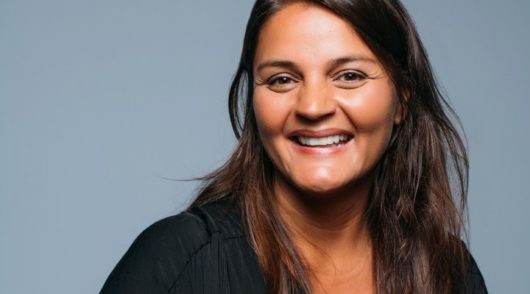 Myer boss Richard Umbers believes the ball rests firmly in the court of Australian retailers when it comes to Amazon’s prospective entry down under, telling investors last week that the forthcoming battle for consumers is “our game to lose”.
Myer boss Richard Umbers believes the ball rests firmly in the court of Australian retailers when it comes to Amazon’s prospective entry down under, telling investors last week that the forthcoming battle for consumers is “our game to lose”.
The longstanding department store retailer will look to use its brand equity and investment in omnichannel to stifle the prospects of international competitors, including Amazon, who Umbers said would face geographical challenges implementing its popular Prime loyalty model.
“We’ve recently made a number of changes to our organisational structures and so on to make sure that we can double down and continue to invest in online,” Umbers said.
“I don’t think it’s a foregone conclusion yet how it will play out with Amazon, although it’s the discussion topic in the industry right now.”
Amazon’s heavily-speculated venture into Australia, alongside a host of other international brands now entering the market, remain a risk for the 117 year old retailer, amid Umbers’ ambitious turnaround plan for the business.
Myer took a mixed result to the ASX on last week, reporting profit growth stymied by declining total sales for the six months ended January 28. Online stood out though, recording 48 per cent sales growth.
Umbers said Myer will keep to its previously announced full year guidance, expecting EBITDA growth to exceed sales growth in FY17 and increased NPAT over the previous year.
However, predictions assume that difficult trading conditions in January, which Umbers admitted were driven by promotional fatigue, won’t re-occur.
Analysts from services firm, JPMorgan, outlined the likelihood that Myer’s like-for-like sales growth was negative during January and Februrary, opting to reduce its near and long-term sales growth prospectus for the company.
“Investor sentiment is expected to remain subdued, with further progress against target metrics, and especially sales growth, likely to be a focus before investors give Myer the benefit of the doubt,” JPMorgan said in a research note.
Myer’s share price dropped 4.65 per cent on the result, but rebounded back to $1.14 by the time markets closed for the week.
The next phase
Umbers said revenue, albeit an important factor, is one of a host of levers available to the executive team in driving continued progress. In the previous half a 77 basis point reduction in cost of doing business (CODB) was a focus that drew the attention of analysts.
Amid questions about how sustainable cost reductions where, Umbers repeatedly clarified that the CODB improvement was driven by the next phase of the company’s turnaround plan, which would involve continued improvements in operational processes.
“Many of the projects which are now coming to fruition have much stronger CODB opportunities,” he explained.
Automating and streamlining labour management and merchandising are high on the agenda, but it was stressed that service standards won’t decline, with the amount of labour in store remaining robust due to a focus on its concession program.
“We have reduced store labour in line with lower wholesale sales,” said Grant Devonport, chief financial officer, Myer.
“It must be remembered that concessions do come with their own labour models and that enables us overall to have more labour in store.”
A number of changes have also been made to Myer’s leadership team, with GM of stores Tony Sutton moving into a new role that focuses on the department stores’ emerging food and cafe offering.
Long-time Myer employee Louise Pearson has moved into the executive management team to replace Sutton and ex-Target ecommerce manager Pete-Mitchley-Hughes will now be the head of business transformation.
Access exclusive analysis, locked news and reports with Inside Retail Weekly. Subscribe today and get our premium print publication delivered to your door every week.





